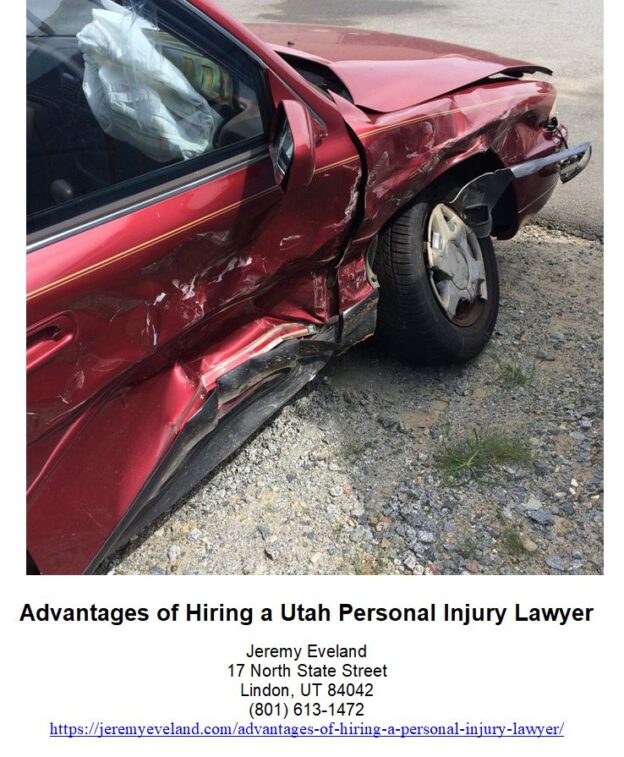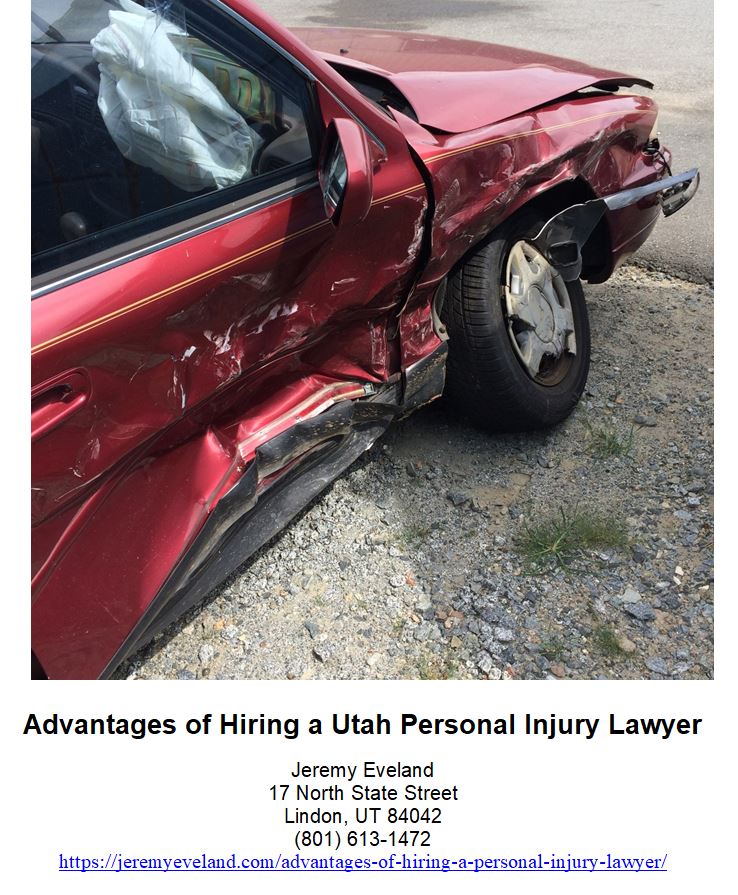A contract is a legally binding agreement between two parties, which obligates those parties to perform specific acts. In order for the contract to be enforceable, each party must exchange something of value, or “consideration.” Additionally, all involved parties need to have a solid understanding of every term of the contract; and, they must be in mutual agreement on the terms. Therefore, a contract dispute occurs when any party involved in a contract has a disagreement regarding any of the contract terms or definitions. In contract law, a contract dispute is generally considered a breach of contract. A breach of contract is when the agreement is not kept due to one party failing to fulfill their obligation according to the terms of the contract.
There are two main types of breach of contract:
- Material Breach of Contract: A material breach of contract is a breach in which the agreement is considered “irreparably broken” due to the breach being so crucial and deep that it renders the purpose of making the contract totally useless. This is sometimes referred to as a total breach. The non-breaching party does not have to perform their end of the contract, and they can sue the breaching party in return for any damages caused by the breach; and
- Minor Breach: A minor breach is sometimes referred to as a partial breach, and occurs when the breach does not affect the heart of the contract. Both parties are required to still carry out their obligations, but the non-breaching party may still sue for damages.
In order for a contract to be valid and legal, the following elements must be met:
- There must be a valid offer;
- An acceptance of that offer; and
- Some form of consideration for the goods or services at issue
Contract disputes may occur during any of the elements mentioned above. Commonly, contract disputes are due to:
- Issues with drafting and reviewing a contract, such as during the discussion regarding terms and conditions;
- Offer and acceptance disputes;
- Mistakes and errors made concerning the terms of the contract;
- Disagreements as to the meaning or definition of a technical term included in the contract; or
- Fraud or coercion, such as a party being forced or tricked into signing the contract.
Even if a contract is properly formed, there may be disputes, such as disputes regarding the performance of contract duties. Further, if a party fails to perform their agreed upon obligations, there may be grounds for a legal dispute. For example, if a seller fails to deliver the goods or services that were purchased by the buyer, then the buyer may seek out various legal remedies for non-performance of the sales contract.
Generally, there are two main options as remedies for contract disputes:
- Legal Remedies: Types of damages available for a breach of contract include compensatory damages (the breaching party pays the promised party what was promised elsewhere in the contract), restitution (the breaching party is required to pay the other party back), and liquidated damages (agreed upon damages that the parties agree to pay in the event of a contract breach); or
- Equitable Remedies: Equitable remedies are legal remedies that allow the non-breaching party to recover monetary damages. Equitable remedies are actions that the court prescribes for the purpose of resolving the breach of dispute. Usually, this entails the parties taking certain actions to correct errors or perform their contract duties.
How Can Contract Disputes Be Avoided?
The best way to avoid contract disputes is to be clear on the contract terms. Also, in some instances, it can come down to one single word or definition contained within the contract. Being very clear in the duties of the parties in the contract is extremely important. Defining highly technical words or trade terms can help you avoid contract mistakes and misunderstandings. Continually documenting negotiations through writings is important, and you should document negotiations of the contract at each step of the way. This means you should keep track of the history of offers, amount of product, prices, and other important terms will help minimize any later disputes related to forgetting some of the terms of the contract. The final contract should also, obviously, be in writing. There will be some estimating and negotiating, so all finalized amounts should be stated specifically during contract drafting. Be especially careful in cases where you are working with a new negotiator, or when a product changes. Checking for personnel credentials, as well as doubles checking the terms to avoid contract fraud, is essential to avoiding contract disputes and breaches. Additionally, knowing the goal of the contract before entering an agreement is vital to avoiding disputes. You should be able to state each negotiating point very clearly, such as selling price, product quality, etc.
How to Handle Contractual Disputes
Yet it is worth emphasizing that many contractual disputes can be avoided if the parties take the time to work out essential details ahead of time. Once again, it is highly advisable to work with legal counsel when negotiating major contracts, and or to have an attorney work with you in preparing a form contract that you may use with your customers. Such steps may minimize your risks and ensure that you are in the best possible position should a dispute arise.
Are There Grounds to Rescind the Contract?
A contract requires a “meeting of the minds” as to key terms of an agreement. So in some special cases there may be grounds to ask a court to for rescission of a contract. For example, one might be wise to talk to legal counsel about their options if they believe they were fraudulently induced into signing the contract based on false representations. But contracts are generally presumed binding and parties are assumed to be aware of all terms in a written contract. Moreover, courts will not usually allow extrinsic evidence that the parties meant for the contract to include terms that were not included in a written agreement.
What to Do When Someone Threatens to Breach the Contract
Major problems can arise if one party is threatening to walk away from the contract. Or perhaps they may proceed with providing certain services, but are threatening to repudiate other responsibilities under the agreement or refusing to satisfy certain conditions. For that matter, innumerable problems might arise from your contractor using a lower grade material than you wanted, to simply performing shoddy work. Or maybe your landlord is trying to tell you that you cannot use part of the property that you have leased. In these cases, you may be able to resolve matters through negotiation. Of course another option if things are serious may be to ask an attorney to write a letter. To be sure, a strongly written letter from an attorney can go a long way toward bringing people to their senses, or the negotiating table. Of course that may also add unnecessary strain if you trying to maintain a friendly working relationship. Yet that is not to say that you should shy away from consulting legal counsel behind the scenes as disputes arise. On the contrary, it is important to consult with legal counsel early for reasons that we will explain. And of course, in some cases it may be acceptable to overlook issues for the sake of maintaining a healthy relationship although it is probably always a good idea to have open communication about your mutual expectations. For example, suppose that you’ve contracted to have “top-rate” produce delivered every other morning at 5AM. Perhaps the company with whom you have contracted occasionally delivers less than stellar produce, or is a bit late in these deliveries. In these cases you might reasonably seek negotiate a discount, and or you might simply remind them of their obligations. But supposing that this becomes a continued pattern, you might have to take a more serious tone. One options is to seek a formal “assurance,” that the other party will live up to its contractual obligation to deliver “top-rate” produce on the previously agreed upon schedule. The idea is that the party seeking an “assurance” is (theoretically) allowed to stop performance of his or her end of the bargain unless and until the allegedly breaching (or soon to be breaching) party provides adequate assurances that the contract will be performed as originally contemplated. However, this is not to be done lightly. You are only justified in withholding performance of a contract if you have an objectively reasonable ground for believing that the other party intends to breach the contract. And the risk is that a court might hold that you are in the wrong which would make you the breaching party. But of course, it is generally advisable to consult with an attorney before taking such action.
Can I Breach My Contract?
You usually have a contractual right to breach a contract. There are usually consequences for breaching a contract. It is usually possible to breach a contract. But it is rarely advisable. There will almost always be a cost for doing so including reputational costs. For one, the other party may be entitled to damages at law. To be sure, when you enter into a binding contract, you are entitled to the value of your bargain. Thus while it may be efficient (and even rationale) to breach a contract under certain conditions, you may very well end up having to pay something to the other party. Of course the prospect of paying money damages will almost always counsel against breaching a contract because it will eat away from whatever cost-savings you are hoping to achieve by walking away from your original agreement. And that is to say nothing of the exorbitant costs that you may have to pay in legal fees if litigation ensues. For that matter, you may also be on the hook to pay their attorney’s fees in such a case. (Conversely, an effective way to discourage breach of contract is to include contractual terms requiring a breaching party to cover attorney’s fees as may be necessary to collect on payments or to force performance). Moreover, in some cases, a court might still require you to perform your side of the bargain. This remedy is available in cases where monetary damages will not suffice to make a contracting party whole.
Negotiations and Settlement
Depending on the circumstances, it may be reasonable to allow a minor breach especially where you want to preserve a long-term relationship. In those cases it may be best simply to make clear your future expectations, and or to warn that you will not tolerate breaches in the future. More often, in these cases the dispute can be resolved through negotiations. To be sure, the vast majority of contractual disputes resolve in settlement of some sort. And for many reasons it is often best to try to find a compromise. As noted above, you might accept a shipment of less than perfect produce if the other party agrees to give you a discount for that delivery. But especially with high dollar controversies, it may be necessary to work out a more formal agreement to resolve disputes. Since a settlement is in itself a contract, it is generally advisable to work with legal counsel. And, once again, it is important to realize that tensions ratchet up when you begin threatening litigation. But that may be necessary in certain cases. Once again, a well written letter from an attorney can go a long way in resolving a dispute in many cases. But if that fails, it may be time to either consider working with a mediator, or bringing a lawsuit.
Bringing Legal Action
You are within your rights to sue over a material breach. But litigation should be an option of last-resort. Indeed, lawsuits are expensive and the parties to the suit will almost never leave on good terms. So before filing suit, you should consider:
- The amount of money in controversy relative to the cost of litigation;
- your ongoing business relationships,
- what you ultimately hope to accomplish, and
- whether your contract includes provisions concerning potential payment of attorneys’ fees in cases of breach, or otherwise. You should absolutely consult an attorney. But at the end of the day, you must make a judgment call as to whether it is worth pursuing a lawsuit—bearing in mind that most lawsuits end in settlement.
You should also remember that lawsuits can be long and drawn-out affairs. So when consulting with an attorney, you should seek candid advice about “best potential outcomes.” And remember, there is usually a risk. An honest attorney will almost always speak in terms of probable outcomes (i.e., this is a strong or weak case).
Do I Have Any Duties to the Breaching Party?
While you are within your legal rights to seek enforcement of a contract, it is important to bear in mind that you generally have a duty to mitigate your damages. This means that you need to find a way to lower or offset the amount of damages you are seeking to recover from the other party. For example, suppose you have entered into a commercial lease with a tenant who is now seeking to break the lease. Technically the tenant is on the hook to cover the agreed upon rent through the entire term of the agreement; however, your duty to mitigate damages requires that you actively seek out another tenant. Thus you might minimize damages by finding someone else to take over the lease. The tenant will owe you something, but his or her liability is capped once you find a replacement tenant.
What Happens after a Contract is Breached?
When a breach of contract occurs or is alleged, one or both of the parties may wish to have the contract enforced on its terms, or may try to recover for any financial harm caused by the alleged breach. If a dispute over a contract arises and informal attempts at resolution fail, the most common next step is a lawsuit. If the amount at issue is below a certain dollar figure (usually $3,000 to $7,500 depending on the state), the parties may be able to resolve the issue in small claims court. Courts and formal lawsuits are not the only option for people and businesses involved in contract disputes. The parties can agree to have a mediator review a contract dispute, or may agree to binding arbitration of a contract dispute. These out-of-court options are two methods of “alternative dispute resolution.”
Remedies for a Breach of Contract
When an individual or business breaches a contract, the other party to the agreement is entitled to relief (or a “remedy”) under the law. The main remedies for a breach of contract are:
- Damages,
- Specific Performance, or
- Cancellation and Restitution
Damages
The payment of damages — payment in one form or another — is the most common remedy for a breach of contract. There are many kinds of damages, including the following:
- Compensatory damages aim to put the non-breaching party in the position that they had been if the breach had not occurred.
- Punitive damages are payments that the breaching party must make, above and beyond the point that would fully compensate the non-breaching party. Punitive damages are meant to punish a wrongful party for particularly wrongful acts, and are rarely awarded in the business contracts setting.
- Nominal damages are token damages awarded when a breach occurred, but no actual money loss to the non-breaching party was proven.
- Liquidated damages are specific damages that were previously identified by the parties in the contract itself, in the event that the contract is breached. Liquidated damages should be a reasonable estimate of actual damages that might result from a breach.
Areas We Serve
We serve individuals and businesses in the following locations:
Salt Lake City Utah
West Valley City Utah
Provo Utah
West Jordan Utah
Orem Utah
Sandy Utah
Ogden Utah
St. George Utah
Layton Utah
South Jordan Utah
Lehi Utah
Millcreek Utah
Taylorsville Utah
Logan Utah
Murray Utah
Draper Utah
Bountiful Utah
Riverton Utah
Herriman Utah
Spanish Fork Utah
Roy Utah
Pleasant Grove Utah
Kearns Utah
Tooele Utah
Cottonwood Heights Utah
Midvale Utah
Springville Utah
Eagle Mountain Utah
Cedar City Utah
Kaysville Utah
Clearfield Utah
Holladay Utah
American Fork Utah
Syracuse Utah
Saratoga Springs Utah
Magna Utah
Washington Utah
South Salt Lake Utah
Farmington Utah
Clinton Utah
North Salt Lake Utah
Payson Utah
North Ogden Utah
Brigham City Utah
Highland Utah
Centerville Utah
Hurricane Utah
South Ogden Utah
Heber Utah
West Haven Utah
Bluffdale Utah
Santaquin Utah
Smithfield Utah
Woods Cross Utah
Grantsville Utah
Lindon Utah
North Logan Utah
West Point Utah
Vernal Utah
Alpine Utah
Cedar Hills Utah
Pleasant View Utah
Mapleton Utah
Stansbury Par Utah
Washington Terrace Utah
Riverdale Utah
Hooper Utah
Tremonton Utah
Ivins Utah
Park City Utah
Price Utah
Hyrum Utah
Summit Park Utah
Salem Utah
Richfield Utah
Santa Clara Utah
Providence Utah
South Weber Utah
Vineyard Utah
Ephraim Utah
Roosevelt Utah
Farr West Utah
Plain City Utah
Nibley Utah
Enoch Utah
Harrisville Utah
Snyderville Utah
Fruit Heights Utah
Nephi Utah
White City Utah
West Bountiful Utah
Sunset Utah
Moab Utah
Midway Utah
Perry Utah
Kanab Utah
Hyde Park Utah
Silver Summit Utah
La Verkin Utah
Morgan Utah
Contract Law Consultation
When you need help with a Contract in Utah call Jeremy D. Eveland, MBA, JD (801) 613-1472 for a consultation.
Jeremy Eveland
17 North State Street
Lindon UT 84042
(801) 613-1472
Related Posts
Estate Planning Lawyer Ogden Utah
Business Succession Lawyer Pleasant Grove Utah
Market Analysis For Business Antitrust Merger
Are Legal Expenses for Estate Planning Deductible?
Common Legal Issues That Should Involve A Business Lawyer
Corporate Attorney West Valley City Utah
What Does A Corporate Counsel Do?
Can Corporate Counsel Represent A Corporation In Court?
Corporate Attorney Salt Lake City Utah
Business Succession Lawyer Saratoga Springs Utah
Estate Planning Salt Lake City Utah
Business Succession Lawyer Holladay Utah
Corporate and Business Law in Utah
Does Starting My Own Business Mean I Get A Corporation Automatically?

















